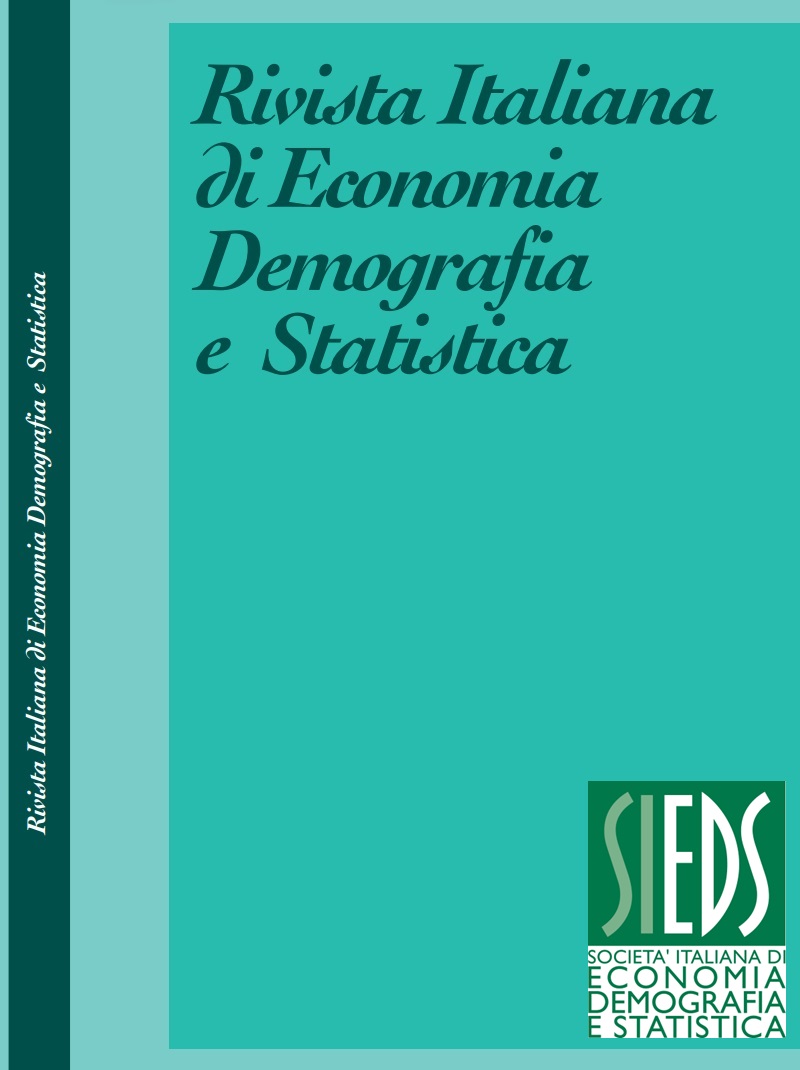How much (un)stable are new jobs in Italy? An analysis based on the work histories’ data
Abstract
This paper starts from the hypothesis that an empirical assessment of the stability and instability in the labour market and, more broadly, of working lives, cannot rely only, or primarily, on the type of labour contract, but should take jointly into account both the labour mobility number of job to job changes and the actual amount of time worked by each individual level of saturation of working time. The evidence presented, based on five years working career, shows that, in the case of Italy, the instability of jobs has increased over the period 2004-17, and that the increasing fragmentation of the “work histories” is a phenomenon affecting mainly, and more strongly, young workers and in the years following their first entrance in the labour market. The empirical analysis of the work histories of “young entrants” shows that the increasing instability of the working lives and conditions in this segment of the labour force deals with: a) an increase of the number of job transitions; b) an increased difficulty of saturating the potential working time; c) an increase of the time required to get a “stable” job.
Downloads
Published
Issue
Section
License
Copyright (c) 2020 Andrea Ciccarelli, Rinaldo Evangelista, Elena Fabrizi

This work is licensed under a Creative Commons Attribution 4.0 International License.



